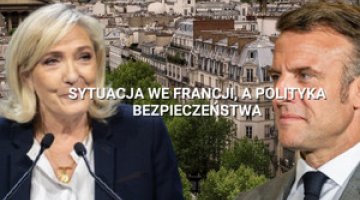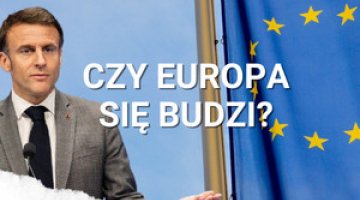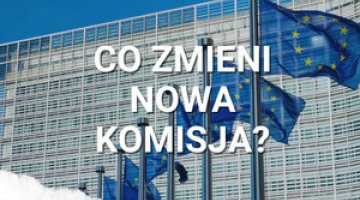Komentarze OSW
The EU internal market – a stake or a tool in European-Russian gas relations.
(Analiza dostępna tylko w wersji angielskiej)
The text was written within the framework of the Ifri-OSW cooperation programme
by Agata Łoskot-Strachota (OSW) in cooperation with William Ramsay (Ifri)
by Agata Łoskot-Strachota (OSW) in cooperation with William Ramsay (Ifri)
The case of new member states gas policy[1]
Since 2010 we have observed a new quality in EU energy policy. It is related to the European Commission’s more or less direct engagement in the bilateral gas relations of a part of the new member states – Poland, Bulgaria and Lithuania – with Russia. Although the long term outcome of this activity of the EC is as yet unclear it seems to be important for several reasons. Firstly it might increase the possibilities of the enforcement of the EU’s directives liberalising the internal gas market and specifically their implementation in individual gas agreements with suppliers from third countries (Gazprom). The consistency and determination of the EC in this field may be decisive for the future direction and depth of the liberalisation of the EU gas market. Furthermore, present developments may lead to an increase in EU and specifically EC competence in the field of energy policy, especially its external dimension.
So what lessons can we draw from recent Commission activities on the following issues:
- Implementing EU gas market 2nd and 3rd liberalisation packages and their main provisions
- EU energy policy and its external dimension – recent developments and the EU’s role
- EU-Russia gas relations – where Russian and EU interests diverge
A look at Polish-Russian negotiations
In autumn 2010, after the European Commission had repeatedly expressed its concerns over whether the conditions of the agreement negotiated between Poland and Russia on the supply and transit of Russian gas were compatible with EU law, the Commissioner for Energy Gunther Oettinger and Director General for Energy Philip Lowe became involved in the ongoing intergovernmental negotiations. This event was unprecedented. Although the European Commission had previously on occasion applied pressure on EU companies to make their gas supply contracts more adherent to EU competition norms[2] before now it had not directly participated in bilateral relations or ongoing negotiations between a member state and an external fuel supplier. This type of involvement for the European Commission in the case of Poland was possible due to the existence alongside the corporate contracts of an intergovernmental agreement for the supply and transit of gas and also due to formal consent, if not invitation, from the Polish government to participate in talks.
The European Commission’s involvement was above all focused on the specification of individual principles for the transit of gas through the Polish section of the Yamal-Europe gas pipeline and issues connected to the functioning of this pipeline. The European Commission joining the bilateral talks led to the attainment of the formal conformity of the Polish-Russian gas contract with the norms of the EU gas market (the Second Package) i.e. the securing of provisions guaranteeing third party access (TPA) to the Yamal-Europe gas pipeline and the appointment of an independent operator administering the Polish section of the pipeline. It is nevertheless unclear how the implementation of the negotiated provisions will be accomplished. Little is known about the actual abilities of the new operator of the Polish segment of the pipeline, Gaz System, and whether it will be capable of implementing the principle of TPA in the next few years. This is particularly important if the pipeline will be used to its full capacity for the delivery of gas from Russia’s Gazprom. In part due to the date the contract was signed (end of October 2010), it was not possible to align the Polish-Russian agreement to the Third Package (launched 3 March 2011) and it is unclear as to whether and how the contract will be adapted to the provisions of this package.
If Poland proceeds with its plans to put in LNG regasification capacity and if in the next years shale gas proves to be economically and environmentally viable, there may well be occasion to test the quality of the third party access provisions that have been negotiated.
The Bulgarian-Russian gas agreement
Towards the end of 2010 the European Commission was also invited by the Bulgarian government to consult on the contract then being negotiated concerning the establishment of a Bulgarian-Russian joint venture which would be responsible for the construction of the Bulgarian section of the planned South Stream gas pipeline. The Bulgarian motivation beside this request to the EC was most probably related primarily to increasing its bargaining power in negotiations with the Russian side. Here once again the European Commission pointed out the incompatibility with EU law of the previous intergovernmental agreement signed in 2008, which covered the supply and transit through Bulgaria of Russian gas. The European Commission called on Bulgaria to adjust its conditions to conform with EU liberalisation rules, including in particular the guarantee of third party access to the Bulgarian transit infrastructure. According to media reports, the agreement in its present shape guarantees Gazprom full and unrestricted transit of Russian gas[3]. Bulgaria was most likely only able to partially adapt the agreement on South Stream to the suggestions of the European Commission. However, although it also promised to make retrospective changes to the provisions of the 2008 agreement, to date are no reports that any actual modifications have been made. Additionally both the Bulgarian and Russian sides declared they would be attempting to release the Bulgarian section of South Stream from its obligation to ensure TPA (at least towards 50-70% of the pipeline’s capacity) and the head of the South Stream AG consortium, Marcel Kramer, appealed for non-discriminatory treatment for the project to ensure a level playing field with the Nabucco project promoted by the EU (which has already received exemptions from the TPA rule).
A full unbundling of the Lithuanian gas sector and Russian gas prices
Finally, in January 2011, the Lithuanian government turned to the European Commission with a complaint and an appeal to look into whether Russia’s Gazprom could be abusing its dominant position on the market[4]. Lithuania, which purchases its gas exclusively from Gazprom and which has no infrastructural possibility to import gas from anywhere else besides Russia, pays according to media reports among the highest prices in Europe. The EU has already been indirectly involved in bilateral Lithuanian-Russian relations in connection with the implementation of the Third Liberalisation Package. The Lithuanian case currently represents a crucial example – often mentioned by the Russian side – of Gazprom’s problems with responding to the ongoing liberalisation of the EU gas market. Gazprom, besides having the monopoly on fuel supplies to Lithuania, is also joint shareholder of the most important company in the Lithuanian gas market, Lietuvos Dujos (ownership structure: 38.9% – E.ON, 37.1% – Gazprom, with the rest owned by the state treasury). This company is responsible for the import and distribution of fuel and is the operator of the entire Lithuanian transportation infrastructure. Lithuania is presently trying inter alia to increase its influence on the development of the domestic gas sector and to defend its own interests (in part connected with the cost of imported fuel but also with the possibility of a development of its infrastructure to enable the diversification of supplies). In seeking these goals Lithuania has become one of very few Central European countries[5] who wish to launch a complete ownership unbundling. This has brought them into a clear conflict of interests with Gazprom (and also with Germany’s E.ON), which would in that situation be obliged to dispose of part of its assets. Negotiations on the conditions of the implementation of the Third Liberalisation Package in Lithuania are ongoing, as are negotiations on the method of settling bilateral disputed issues (besides unbundling and the issue of the ownership of assets, also the cost of Russian gas in Lithuania). Should more specific solutions be worked out, a more direct involvement for the European Commission in the process may not be ruled out.
The goals of the European Commission’s involvement in bilateral gas relations
In the above examples, everything points to the fact that it is the new member states (the governments of Poland, Bulgaria and Lithuania) who are engaging the European Commission in bilateral gas relations with Russia. Although the cohesion of agreements drawn up in line with EU law is crucial for each of those countries, it appears that in engaging the European Commission, the new EU member states wished above all to increase their negotiating potential and to improve the conditions of gas cooperation with Gazprom.
It is also clear that the European Commission, for several reasons, is eager to take part in these negotiations. Firstly, it is the European Commission itself which safeguards the conformity of new gas contracts – and also those currently in force – with the principles of a liberalising EU gas market. To date these have been mainly the provisions of the Second Liberalisation Package (including the guarantee of TPA). Entering bilateral relations gives the EC additional instruments in its efforts to ensure this conformity. Actions of this type by the European Commission are aimed at ensuring respect for the provisions of EU law and are observed also in other cases, e.g. in Germany in connection with the construction of onshore branches of the Nord Stream gas pipeline (NEL and OPAL). The European Commission is at the same time attempting to work out principles for implementation of the Third Liberalisation Package[6], including the particularly controversial (both within the EU and in the opinion of a section of external suppliers) provision concerning unbundling of the ownership of the production and sale of gas from its transmission. The process of working out of these principles seems to be particularly essential in countries strongly dependent on supplies of Russian fuel where Gazprom is also the co-owner of part of the transportation/transmission infrastructure (inter alia in Poland and Lithuania). Thus the way the Russian side will gradually adapt to the changing regulations on a liberalising gas market and what the cost of this adaptation will be for member states and the EU side, may be a crucial element in defining the new modus vivendi in EU-Russia gas relations. Finally, in becoming involved in issues which until recently had been the exclusive competence of member states, the European Commission sees the possibility of not merely a temporary but also a longer-lasting extension of its role and competence in energy relations with third countries.
Effects to date and the possible further consequences
The involvement of the EU (the European Commission) in the gas relations of new member states with Russia has led to some measure of convergence with EU principles but has in no case ended in a complete success. The most effective involvement for the European Commission to date would appear to have been in negotiations of the Polish-Russian gas agreement, whose provisions were brought into line with EU law. With Lithuania, merely the concept of launching full ownership unbundling as envisaged in EU directives represented one of the key arguments and instruments allowing Vilnius to apply pressure in its gas talks with Moscow.
All of the above examples lead to the increasing visibility in public debate of the importance and utility of the conformity of bilateral contracts with EU regulations. As a consequence, one of the resolutions of the February energy council of the EU is that member states should as of 2012 inform the European Commission about new contracts or contracts currently in force for fuel supplies with third countries[7]. They have also indirectly made from the issue of unbundling and of how Gazprom operates inside a liberalising EU gas market becoming one of the key subjects of EU-Russia energy talks. The case of Lithuania is particularly crucial in this context; for example Prime Minister Putin referred to it during his visit to Brussels in February 2011[8].
Nevertheless, the long-term effects of this type of EU activity depend on a host of factors. One of them is the consistency of the European Commission in launching the Third Package. The Lithuanian example may turn out to be particularly crucial in this, showing if, how and with what consequences it is possible to force Gazprom to divest part of its assets in order to secure the full implementation of EU liberalisation rules or whether the EC and Member States are doomed to accepting sub-optimal compromises forcing them in most cases to abandon the dream of full ownership unbundling. One must recognise that there are a number of European companies who would not be unhappy with this result.
The other factors influencing the final outcome of present developments are the actual possibilities of institutionalising this type of European Commission activity, and the participation of the EU representatives in ensuring conformity with Community law of commercial gas relations with third countries / suppliers from third countries. It is clear that few EU member states would be willing to grant the European Community such a role Nearly all companies and many member states would view the involvement of the European Commission in their bilateral negotiations with third countries on the conditions of an agreement or contract (as with Poland) as an infringement on their exclusive/autonomous rights. It is difficult to assess the willingness of even the ‘new’ member states to formally sanction the validity of not merely one-off but the regular and also extensive admittance of the EU side into their gas relations with Russia.
Recently observed openness to cooperation with the EU side was in large measure caused above all by the asymmetry of negotiations between them and Gazprom. Involvement of the European Commission was above all simply exploited as an element of the game in play (which could be, for example, suggested by the Bulgarian case, where the European Commission postulates concerning changes of the provisions in the main gas contract between Russia and Bulgaria have not thus far been met with understanding). Larger EU members have greater bargaining power in relations with Russia and larger gas companies better able to go nose to nose with Gazprom.
Finally, it is not clear how great a determination the EU itself has for launching the principles of a liberalising gas market if it might jeopardise its own strategic relations with Russia. The unambiguous opposition of the Russian side towards certain provisions of EU directives along with Russia’s significance as a supplier (growing in recent months in part due to the context of conflicts in North Africa and the Middle East) may make the European Commission inclined to seek compromise.
Conclusion
The business of liberalising the EU gas market is fraught with challenges – internal and external. These first efforts by the Commission to help Member States stand firm on Community principles with external suppliers are a welcome sign that the external dimension of the third package doesn’t need to await resolution of internal challenges. Perhaps the biggest challenges confronting the Commission are in nurturing the convergence of the internal market practices of Member States, e.g. regulatory policies, pricing, integration of infrastructure decisions, governance and more generally a recognition that all 27 Member States are equal partners in the same internal market. Here traditional market players who are comfortable with the status quo ante will take measures with an optic of compliance with the Third Package, but with a lack of enthusiasm for the reality. The positive role of the Commission in the above examples will strengthen its hand on more difficult tasks to come.
The text was written within the framework of the ifri-OSW cooperation programme
by Agata Łoskot-Strachota (OSW) in cooperation with William Ramsay (Ifri)
by Agata Łoskot-Strachota (OSW) in cooperation with William Ramsay (Ifri)
[1] Shortened version of this article is included in OSW Policy Brief on EU’s external energy policy (forthcoming June 2011)
[2] Since 2001, The European Commission and the DG Competition have been applying pressure for the removal of destination clauses from gas supply contracts and succeded in several cases for example: NIGERIA LNG-Enel, ENI-Gazprom, E.on-Gazprom, OMV-Gazprom, Sonetrach-Gas Natural, Sonatrach - ENI
[3] see e.g. http://www.platts.com/RSSFeedDetailedNews/RSSFeed/NaturalGas/8178620
[4] for more on the position of Gazprom in the Baltic states, including Lithuania, see http://www.osw.waw.pl/sites/default/files/GP_EU_10_09.pdf
[5] Estonia has acted similarly, however the issue is not a topic of public debate, e.g. it is not raised emphatically on the EU forum
[6] The directives came into force on 3 March 2011, the ownership unbundling is however set to be launched on 3 March 2012 and the granting of certificates allowing activity on the EU market to operators controlled by firms from third countries is set to be completed by 3 March 2013.
[7] see Conclusions on Energy, European Council 4 February, PCE 026/11, point 11
[8] see e.g. Putin Criticizes EU Energy Policy, The Wall Street Journal Online, 25 February 2011







